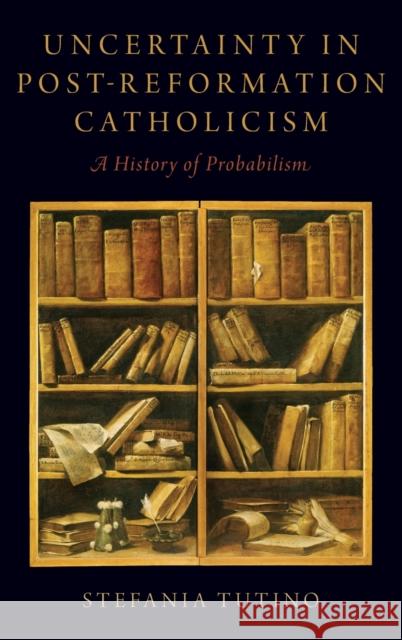Uncertainty in Post-Reformation Catholicism: A History of Probabilism » książka
Uncertainty in Post-Reformation Catholicism: A History of Probabilism
ISBN-13: 9780190694098 / Angielski / Twarda / 2017 / 584 str.
This book provides a historical account of early modern probabilism and its theological, intellectual, and cultural implications. First developed in the second half of the sixteenth century, probabilism represented a significant and controversial novelty in Catholic moral theology. By the second half of the seventeenth century, and thanks in part to Pascal's influential anti-probabilist stances, probabilism had become inextricably linked to the Society of Jesus and to a laxist system of morality, which emphasized and exploited the elasticity of moral rules. To this day, most scholars of early modern religious history either ignore probabilism, or associate it with moral duplicity and intellectual and cultural decadence.
Uncertainty in Post-Reformation Catholicism argues that probabilism played a central role in addressing the challenges that a geographically and intellectually expanding world posed to traditional Catholic theology. Early modern probabilist theologians realized that their time was characterized by many changes and novelties that traditional theology was not equipped to deal with, and that consequently provoked an exponential growth of uncertainties, doubts, and dilemmas of conscience. These theologians used probabilism as a means to integrate changes and novelties within the post-Reformation Catholic theological and intellectual system. Seen in this light, probabilism represented the result of their attempts to appreciate, come to terms with, and manage uncertainty. The problem of uncertainty was not only crucial then, but remains central even today. Despite the unprecedented amount of information available to us, we are becoming less able to formulate arguments based on facts, and more dependent on a cacophony of opinions that often simply reproduce our own implicit or explicit biases, prejudices, and preconceived preferences.











